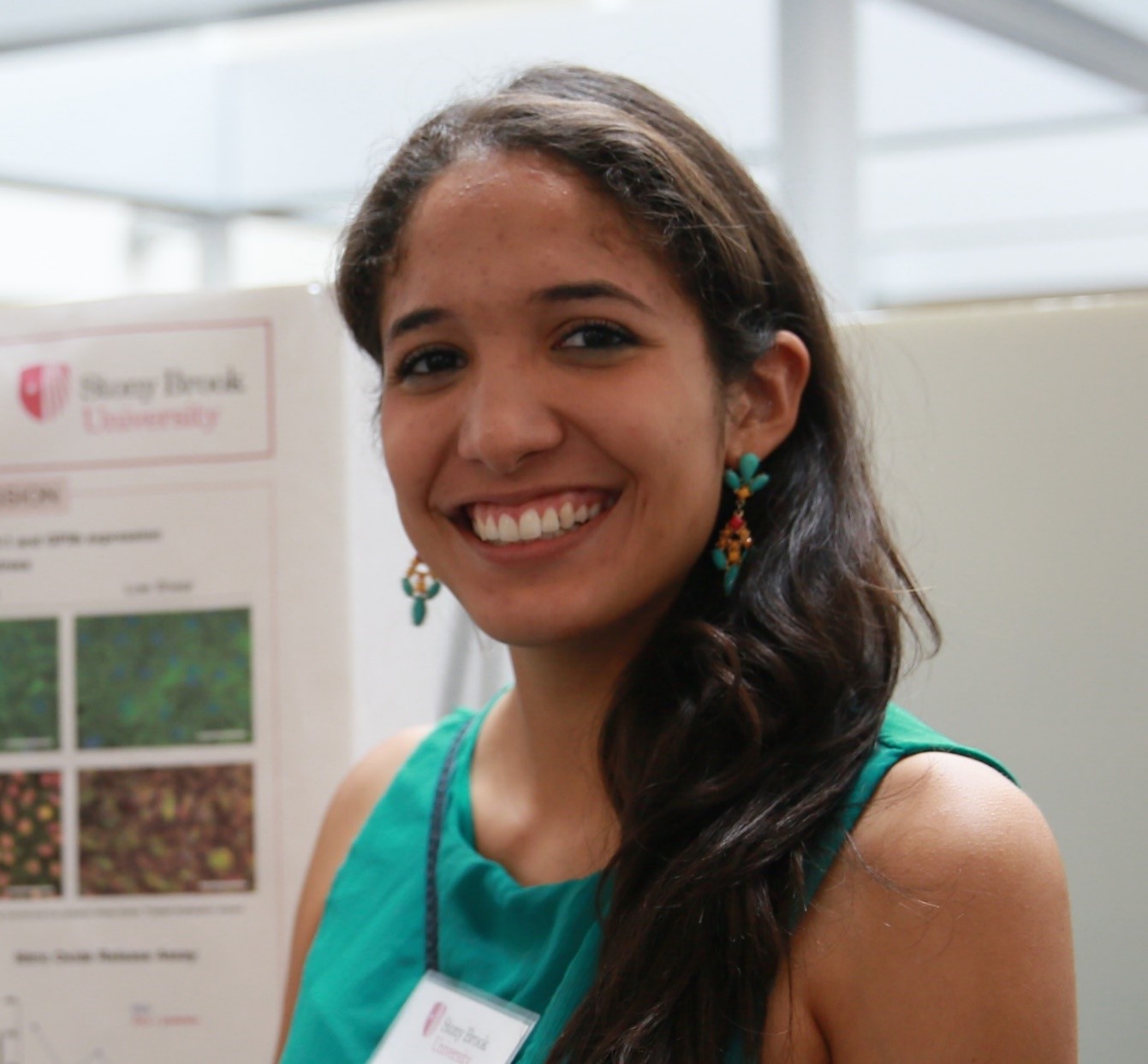CIE Researcher of Distinction, July 2016
Daphne Meza
Each month, the Center for Inclusive Education showcases the outstanding research being conducted by one of our talented scholars in our Research Café series. In addition, we recognize this scholar as a Researcher of Distinction and share the details of his/her journey to becoming an accomplished scholar. This month's Researcher of Distinction is Daphne Meza, PhD candidate in the Department of Biomedical Engineering. Daphne presented her talk, ‘Understanding the Mechanobiology behind Atherosclerosis Formation’ on Wednesday, July 27, 2016.
Daphne's Path Into Research
I was born and raised in Honduras. I completed my bachelor’s degree in mechanical engineering at the University of New Orleans where I participated in three biomedical research internships at Brookhaven National Laboratory during the summer months. That research experience brought me here to Stony Brook, where I am continuing my work in the biomedical sciences. My PhD dissertation focuses on understanding the impact pathological hemodynamics has on atherosclerosis formation. I am an AGEP-T FRAME, Bridge to the Doctorate, Turner and GEM Fellow.
Daphne's Current Research
Describe the work you presented for your Research Café.
Atherosclerosis formation in the coronary arteries is the main cause of Coronary Artery Disease (CAD), which is the leading cause of death in the US. Coronary arteries are subject to various mechanical stresses/strains, including blood flow induced shear stress and blood vessel motion (dilation, contraction, and bending) induced tensile (or compressive) stress/strain. It has been well documented that mechanical stress/strain plays an important role in regulating vascular endothelial cell physiology, function, and the pathological development of vascular diseases such as atherosclerosis. My work focuses on understanding how these different mechanical conditions work together to regulate multiple aspects of vascular physiology, function, and disease initiation. A better understanding of this process can lead to more targeted preventive and therapeutic solutions for cardiovascular diseases.
What was the deciding factor for you to come to Stony Brook for your graduate studies?
The deciding factor for me to come to Stony Brook was Brookhaven National Lab. Since I already worked there, I knew what it had to offer and the research aligned with my interests. Also the CIE, which offered a support no other school had.
What are your future goals?
My future goal following the completion of my doctoral degree is research and development in the medical device industry.
What do you enjoy most about research?
What I enjoy most about research is the impact it can have, even if it is long-term on society. I also like that research is not monotonous; it’s not routine work, it changes every day.
